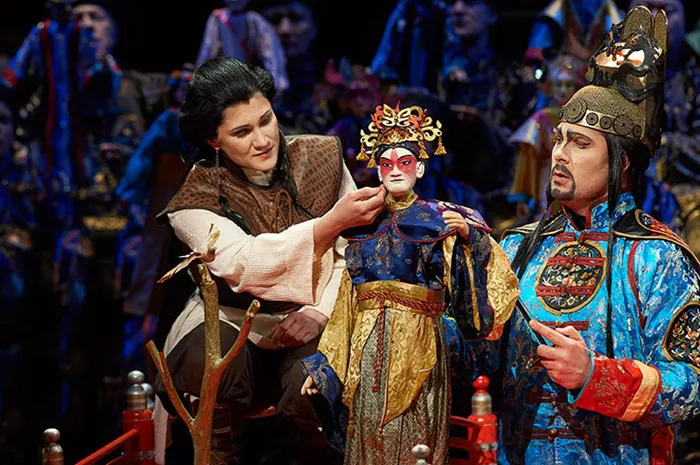Igor Stravinsky, a luminary of the 20th-century music scene, revolutionized the world of classical music with his innovative compositions. Born in 1882 in Oranienbaum, Russia, Stravinsky’s early exposure to music paved the way for his extraordinary career. He studied under renowned composers like Rimsky-Korsakov, absorbing diverse influences that would later shape his distinct style.
Operatic Works by Stravinsky
Igor Stravinsky, celebrated for his groundbreaking contributions to classical music, ventured into the realm of opera with a distinct creative vision. His operatic works, while not as numerous as his orchestral and ballet compositions, stand as pillars of innovation and artistic exploration.
Despite a relatively modest number of operatic works, Stravinsky’s contributions to the genre are profound and enduring. Each opera reflects his evolving artistic journey, from early explorations of folk elements to later experiments with neoclassical forms and avant-garde techniques. Stravinsky’s operatic legacy continues to inspire audiences and artists alike, cementing his place as a visionary in the history of music.
Key Operas
Stravinsky’s operatic repertoire features several key works that highlight his artistic prowess:
1. The Rake’s Progress (1951): A collaboration with librettist W.H. Auden and Chester Kallman, this opera unfolds the moral tale of Tom Rakewell’s descent into depravity and eventual redemption.
Stravinsky’s neoclassical style shines through in this opera, combining wit, drama, and musical intricacy.
2. The Nightingale (1914): Based on Hans Christian Andersen’s fairy tale, this one-act opera explores themes of love, sacrifice, and the transcendent power of music. Stravinsky’s use of exotic scales and orchestral coloration creates a magical atmosphere, enhancing the mystical narrative.
3. Oedipus Rex (1927): Collaborating with Jean Cocteau, Stravinsky delves into Greek mythology with this operatic masterpiece. The fusion of spoken word, choral passages, and intricate orchestration elevates the tragic tale of Oedipus, showcasing Stravinsky’s mastery of dramatic storytelling.
Themes and Style
Stravinsky’s operatic works often explore themes of human nature, fate, and societal dynamics. His musical style evolved significantly throughout his career, transitioning from the lush Romanticism of his early works to the neoclassical and serialist influences in his later compositions. His use of polyrhythms, dissonance, and unconventional tonal structures adds depth and complexity to his operatic narratives, inviting audiences into a realm of sonic exploration.
In his early operatic endeavors, such as “The Nightingale,” Stravinsky exhibited a fascination with folk elements, incorporating exotic scales and rhythmic patterns reminiscent of Russian folklore. This blending of traditional and avant-garde elements laid the foundation for his later works, where he boldly experimented with form and structure, as seen in “The Rake’s Progress.”
As Stravinsky’s career progressed, his operatic style underwent a transformative phase marked by neoclassical influences. Works like “Oedipus Rex” showcase his adeptness at integrating spoken word, choral passages, and instrumental interludes to create a cohesive and immersive dramatic experience. His exploration of ancient themes resonated with contemporary audiences, highlighting the timeless relevance of his artistic vision.
Performance History
The performance history of Stravinsky’s operas reflects their enduring appeal and artistic significance. From their premieres to modern-day revivals, these works continue to captivate audiences and challenge performers with their technical demands and emotional depth. Notable opera houses and festivals worldwide have showcased Stravinsky’s operas, solidifying their place in the classical music canon.
Throughout the 20th and 21st centuries, Stravinsky’s operas have been celebrated for their innovative approach to storytelling and musical expression. Their inclusion in prestigious venues such as the Metropolitan Opera in New York, the Royal Opera House in London, and the Paris Opera underscores their enduring popularity and cultural impact.
Legacy and Influence
Stravinsky’s impact on the operatic landscape extends far beyond his own compositions. His innovative approach to music composition and storytelling has inspired generations of composers, directors, and performers. Elements of his style can be found in contemporary opera productions, showcasing the lasting legacy of his artistic vision.
Contemporary composers and directors continue to draw inspiration from Stravinsky’s operatic works, incorporating avant-garde techniques, unconventional instrumentation, and thematic depth into their creations. His exploration of mythological themes, psychological drama, and societal critique remains relevant in modern opera, reflecting the enduring relevance of his artistic legacy.
Conclusion
In conclusion, Igor Stravinsky’s operatic legacy remains a testament to his genius and innovation. Through his key operas, exploration of themes and styles, rich performance history, and enduring influence, Stravinsky continues to enrich the world of opera and classical music, leaving an indelible mark on artistic expression.

